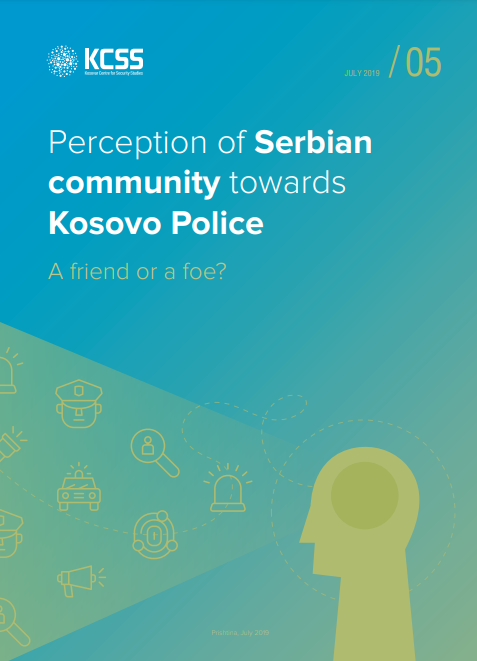29/08/2019

Kosovar Center for Security Studies (KCSS)
Balkans Trust for Democracy (BTD)
Shpat Balaj
The K-Serb community living south of the Ibar river, started to endorse the concept of policing from a community perspective and as an instrument of public service. While in the North, the inheritance of the previous system of policing based on militarization and the Serbian state prerogative prevailed until the dissolution of the parallel security structure as a result of Brussels Agreement in 2013. This has led to mixed perceptions of KP in the four northern municipalities.
Despite many of the members of KP deriving from the former Serbian MUP, reluctance towards KP surfaces not only because of the symbolism associated with the KP uniform but also to their level of competence and loyalty to the community interest. This idea has been vocalized by the prominent Serbian politician in northern Kosovo, Mr. Oliver Ivanovic, who said that the same people, who performed competently in the Serbian MUP are no longer performing to the same extent in the Kosovo uniform.
This paper summarizes the existing state of play with respect to the K-Serb community stance towards the KP in the majority Serbian inhabited municipalities by focusing on the four northern municipalities of Kosovo. It covers the main events and developments in context and presents public perception towards KP as a result of political tensions in the north and an overall state of fear among the population. Additionally, the paper analyzes the main safety concerns of the KSerb community and offers several recommendations to address such concerns and challenges from a community perspective.
The paper relies on the extensive research KCSS team did in northern Kosovo and key Serbian majority inhabited municipalities throughout the rest of Kosovo. Discussions were held with citizens and police representatives clustered into six seminars in: North Mitrovica, Leposavic, Zvecan, Zubin Potok, Gracanica and Shterpca. These were followed by face-to-face interviews with government representatives as well as civil society. The team did content analysis of official documents, existing reports and reviews of relevant legal frameworks. The overall findings have been backed up by the participatory observation of KCSS team involvement in different relevant processes as well as consultations with relevant actors.
This report is produced thanks to the financial support from the Balkans Trust for Democracy, a project of the German Marshal Fund of the United States. Opinions expressed in this publication do not necessarily represent those of the Balkan Trust for Democracy, the German Marshal Fund of the United States, or its partners.